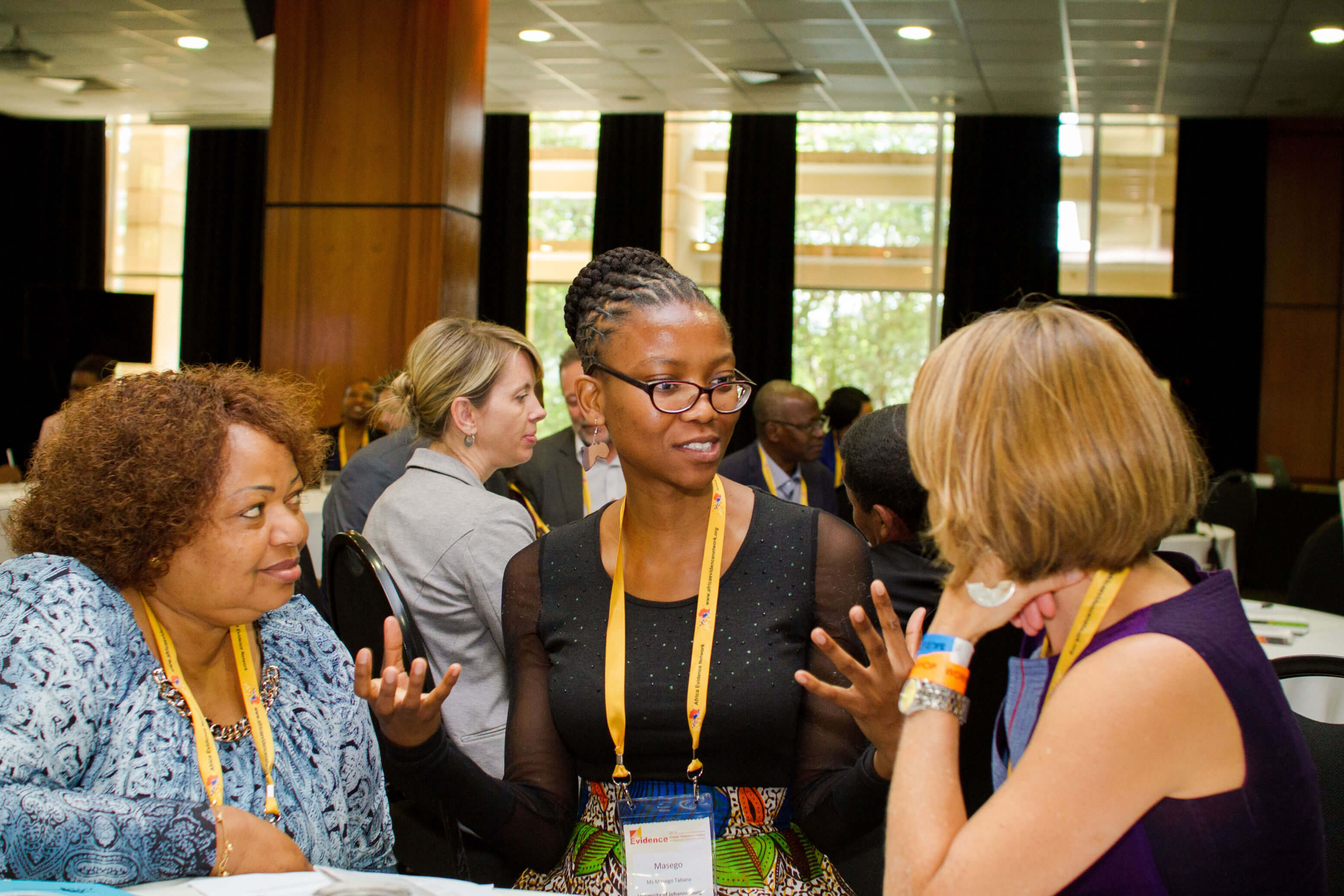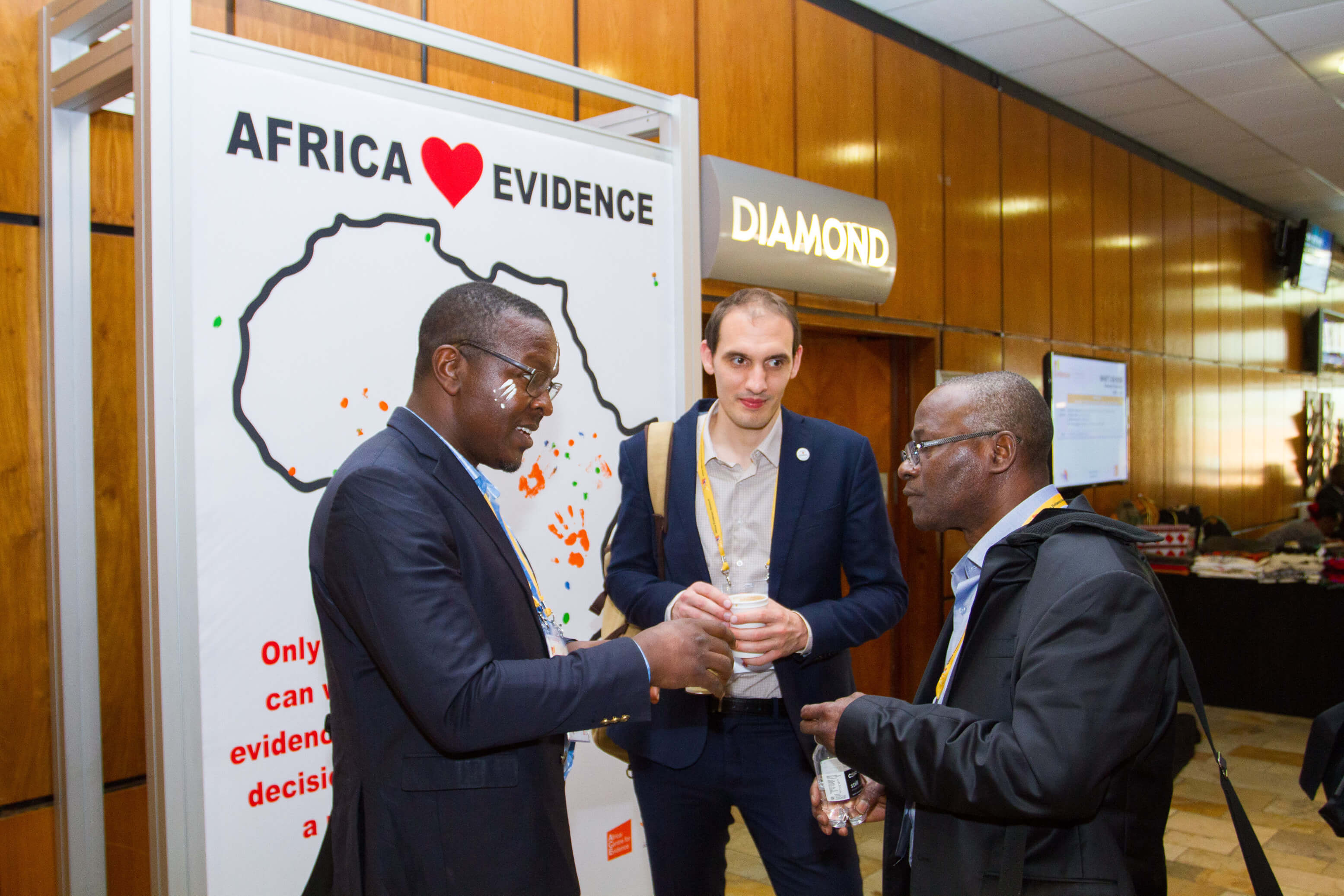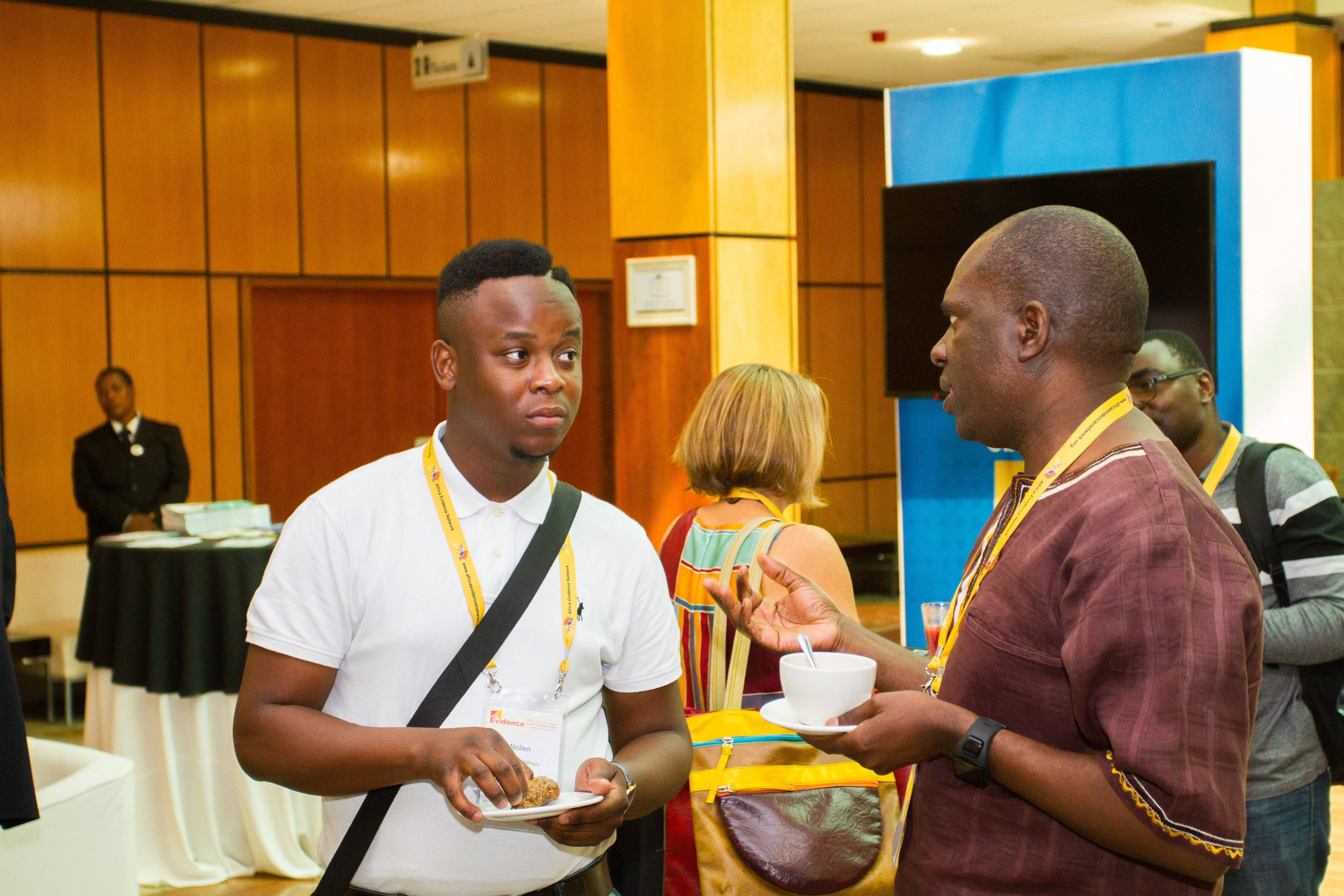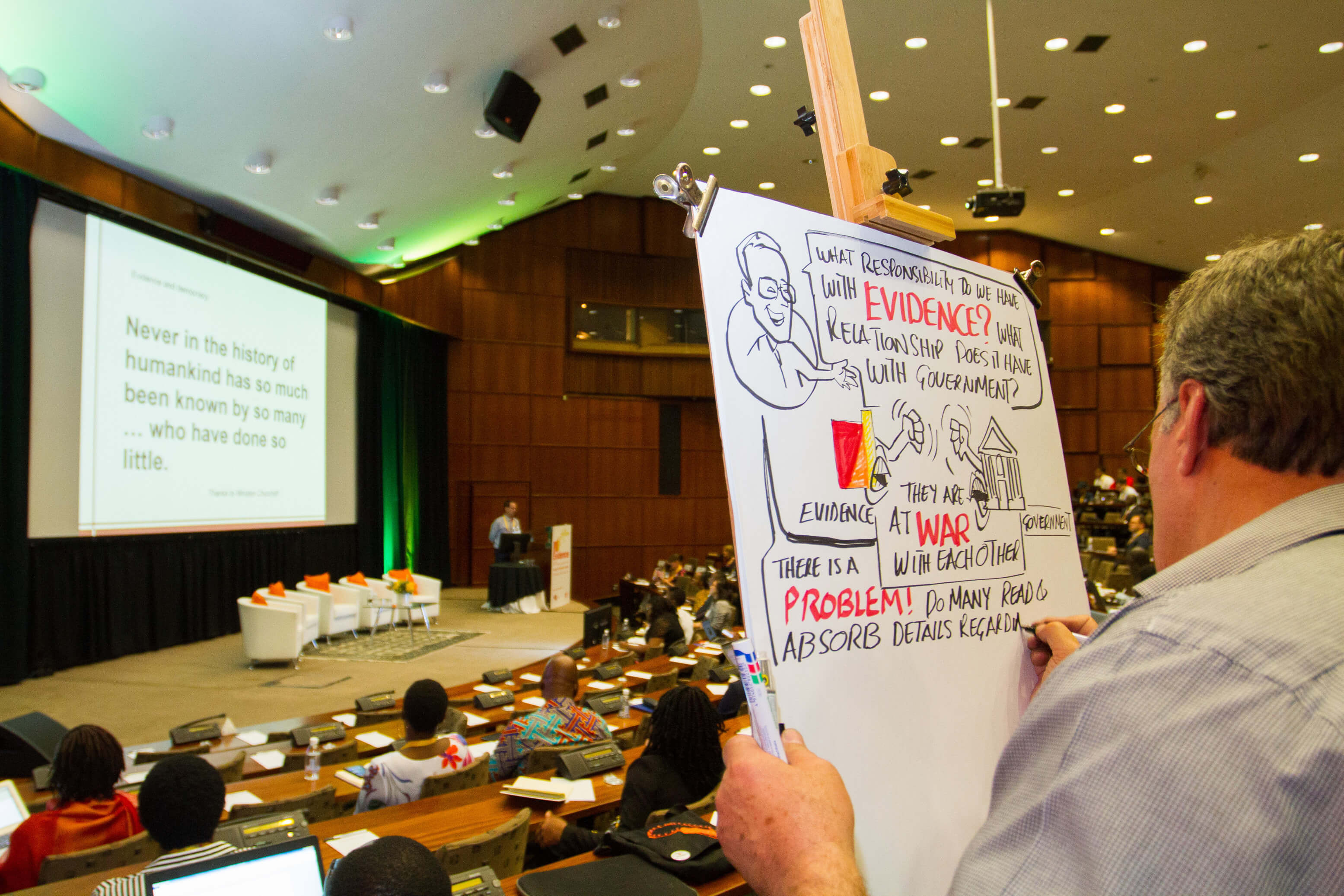Qu’est ce que sont les décisions fondées par les données probantes?
Evidence-informed decision-making (EIDM) is when people who need to make choices use the best available evidence to motivate their decisions. Evidence can refer to scientific research but equally so to citizens’ voices, census data or expert opinion, among other sources. EIDM aims to make use of the best available evidence for the decision at hand. That is, it aims for evidence that is fit-for-purpose, suitable for the context, and scalable for the decision to be taken. Anybody can engage in using evidence. In the context of development, EIDM is most often associated with decision-makers in the public sector (e.g. civil servants and parliamentarians), and civil society (e.g. NGOs) who design and implement programmes aimed at reducing poverty and inequality.



